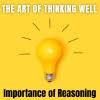How to maintain your company's culture? 5 ways decoded!

Blog Post
What is the simplest approach to defining values and set goals? Through user-friendly employee engagement tools that allow them to define, maintain, and adjust the timing of their goals at any time. #ThinkWithNiche
Simply said, your company's culture is its personality. Organizational culture is influenced by the workplace atmosphere, company mission, company values, the firm's ethical views, the leaders' and employees' expectations, and lastly the company's goals and objectives. Employees are more likely to like working in a firm that creates a positive culture that they fit into if it promotes a positive culture. Employees who prefer to work alone in a culture that encourages group work, for example, will never be a suitable match.
Begin with the most powerful person in the room: the leader
Rethink your leadership style to solve your cultural challenge, as it will have a significant impact on your company's culture. The team or organization's leader serves as a bridge between what each team or individual employee desires and what the organization as a whole desires and requires. Leaders essentially construct the culture of their companies via their own actions, therefore if the leader isn't on board, the culture will not change for the better. The leader must understand and promote the firm's culture through their own actions, they must believe in what the rest of the organization wants, and they must lead in an open and transparent manner.
Establish clear objectives, values, and missions
To begin, setting clear goals and principles should be a collaborative effort in which ALL workers and fully briefed on what is expected of them. Goals and values should be easily adaptable and flexible, not merely appropriate for the current organizational aim, as organizations change, their customers change, and the world of business is tremendously ever changing.
Employees who do not fully understand what is expected of them or are provided the little context of the goals are one of the leading causes of poor corporate culture, which causes frustration and a turnover of employees. As a result, make your objectives and values clear. Set them up with your employees in mind, include them in the talks, and freely express their thoughts on the company's values, goals, and/or next actions. This will also enable more meaningful goals to be created, increasing the likelihood of success.
Hire people who share your objectives, beliefs, and missions
To maintain the great culture for which you will work so hard, begin by only hiring people who will fit your company's culture.
Your new recruits will become a member of your team sooner, contribute to your team more immediately, be happier in their new responsibilities, stay in the team longer, and excel more in their roles if you do this.
If a candidate doesn't fit, you might notice that they become dissatisfied quickly, don't follow the required behaviors, and leave their job sooner than those who do.
Come up with a manifesto
This will essentially be a condensed and memorable version of your company's culture's stated aims and values.
Make a clear and eye-catching poster that describes these beliefs and aims in a straightforward manner, and then post it wherever you can (without going overboard) - for example, on your website, in meeting rooms, in offices, and so on.
Put time and resources into it
Building a successful and positive culture may appear straightforward, but it is not a quick cure. Developing a strong culture will take time, effort, and patience. The best approach to look at culture building is as time, energy, and financial commitment.
Invest in events that can help your team bond. These are aimed at fostering trust, togetherness, and more positive workplace culture in general. Most of these activities are both inexpensive and enjoyable, and they are extremely effective in developing a strong, trusting, and unified culture.
Conclusion
Employees should always be your most important investment and attention. You must devote time, effort, and money to growing them as employees, enhancing their abilities, and ensuring that they fully comprehend the company's culture and what is expected of them.
When it comes to culture creation, you generally receive what you put in. If you devote all of your efforts to building a strong culture, you will eventually attain a strong and positive workplace culture.
You May Like
EDITOR’S CHOICE












